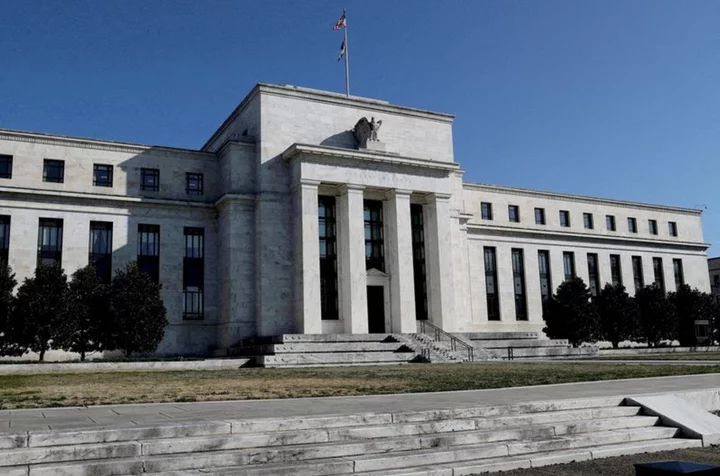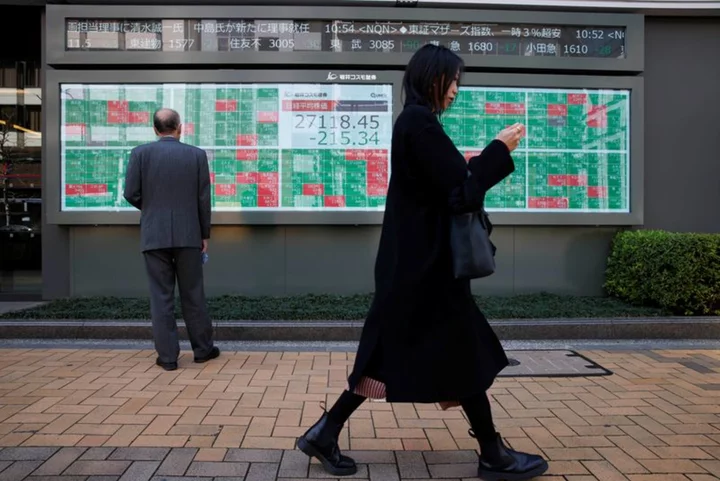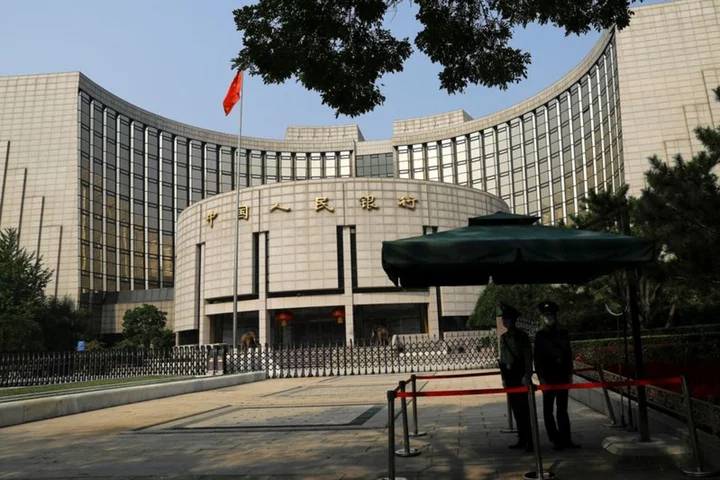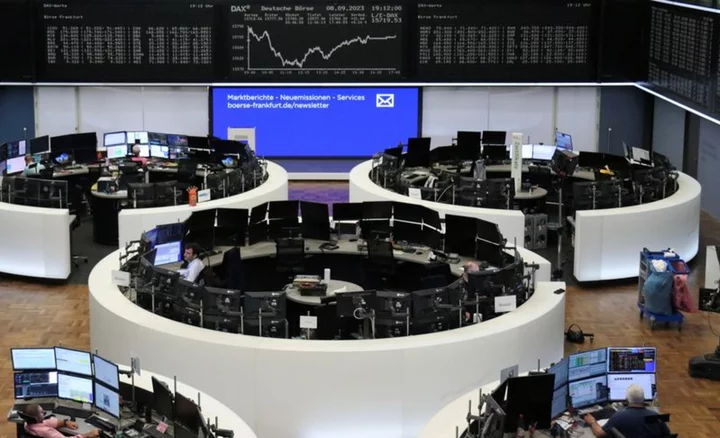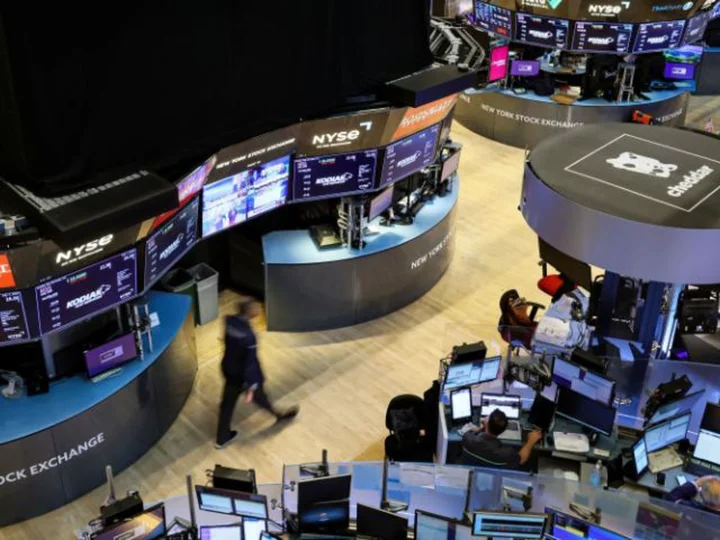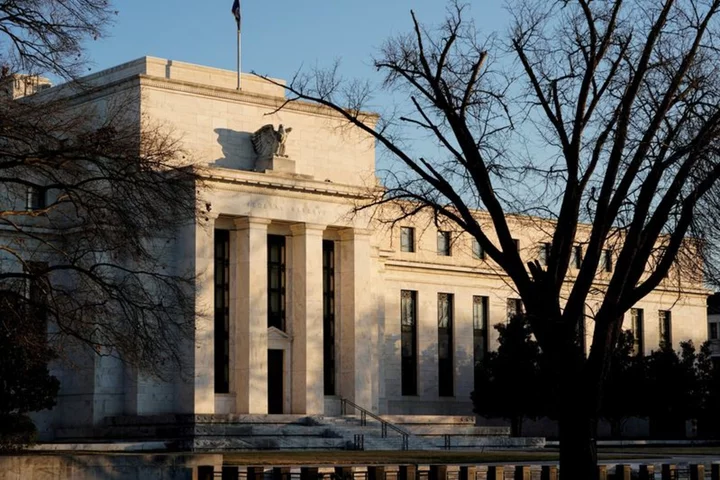By Naomi Rovnick and Yoruk Bahceli
LONDON Hawkish central banks have sent a resounding "no" to markets betting recession would force rate cuts soon, leaving money managers scrambling for direction as the second half of the year approaches.
The U.S. Federal Reserve on Wednesday paused its most aggressive rate hiking cycle in decades, but signaled that borrowing costs will likely rise by another half of a percentage point by year-end given sticky inflation.
The European Central Bank followed on Thursday, leaving the door open to more rate hikes as it flagged risks from rising wages and revised up its inflation projections, sending euro zone bond yields surging.
In the UK, where price pressures keep shocking investors and the Bank of England, traders priced in a high chance of rates reaching 6% early next year, a level unseen since 2000.
Markets had lulled themselves into a "false sense of security," said Jason Simpson, senior fixed income strategist at State Street's SPDR ETF business.
"Markets have been wrong not only in their interpretation of the data but of the central bank reaction," he added. "Even though inflation is coming down, you are still getting that phase were the central banks think they need to talk hawkishly about this."
For fund managers whose top 2023 trades have disappointed, the hawkish shift once again reinforces positioning challenges heading into the second half.
One consensus bet was a U.S.-led global downturn strong enough to quell inflation and spark rate cuts by year-end, which would boost government bond prices, weaken the dollar and help emerging market assets shine.
Those trades have been turned on their head, especially with a quick resolution to a U.S. banking crisis in March dampening expectations that central banks would pivot to easing soon.
Two-year U.S. and European bond yields are now at their highest since March. Shorter-dated Treasury yields are up this year, longer ones have barely dropped and overall they have returned just 1% after a 2022's 12% loss.
Britain's two-year bond yield on Thursday hit its highest level since the global financial crisis.
A resilient dollar is just a fraction below January levels, and emerging market stocks have underperformed - rising 6% so far this year versus a 13% rally in global stocks.
Canada last week restarted rate hikes, Australia has come off a pause and Norway may have to accelerate hikes next week. Only the Bank of Japan remains dovish.
WHICH WAY NEXT?
If the second half of the year is all about getting the growth story right, signs from markets are confusing. The U.S. Treasury yield curve is deeply inverted, a gold-plated sign of pending recession, yet U.S. stocks are in a bull market.
And while traders have pushed their bets on rate cuts to next year, they have shrugged off fresh Fed guidance, pricing in less than a 70% chance of another 25 bps hike in July, and more cuts next year than Fed policymakers anticipate.
Banks are divided too. BofA now expects two 25 bps interest rate hikes from the Fed this year, JPMorgan sees only one more and Morgan Stanley sees none.
The divergence means investment views on how to trade vary.
Some, like Jupiter fixed income fund manager Mark Nash, are adding to positions in risky assets such as emerging market bonds believing the global economy is now strong enough to position for growth.
"The market is entering a new mode where it's pricing out recession and looking at higher interest rates for longer," Nash said, seeing shorter-dated U.S. and euro zone government bonds as a "dangerous place to be."
Others, like BlueBay Asset Management senior portfolio manager Kaspar Hense, have been buying shorter-dated gilts on the view that markets have repriced too far. He also favours risky assets like junk bonds and some loans which he says are overcompensating for recession risks.
Carmignac fixed income strategist Michael Michaelides said the firm is long five-year Treasuries and higher-rated euro zone government bonds, expecting that if central banks hike much more a recession or disinflation will make them take some of it back.
Shamik Dhar, global chief economist at BNY Mellon Investment Management and a former BoE economist, expects equities will face a "significant downturn" in the next six to nine months -- a view many share that is yet to play out.
He sees the reaction from Treasury markets reflecting an understanding that rates might rise slightly further, but that a recession is also around the corner.
"You might get this slightly confusing situation for the bond markets, where on the one hand, they're witnessing a rising chance of recession, but on the other hand, they're not really seeing a softening in central bank rhetoric," Dhar said.
(Reporting by Naomi Rovnick and Yoruk Bahceli; Editing by Dhara Ranasinghe and Conor Humphries)

